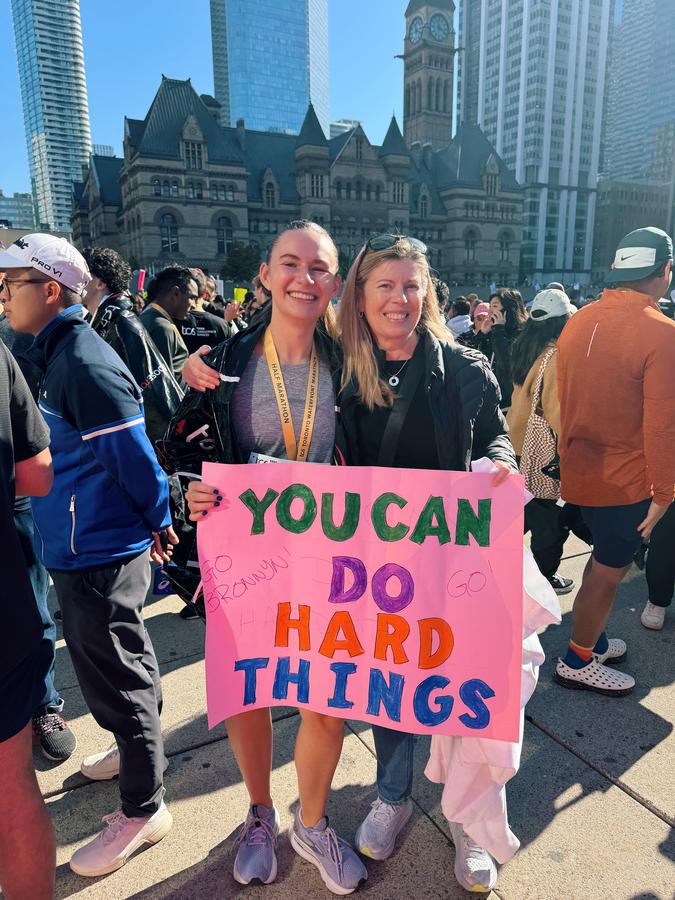
Shannon MacLennan
Aug. 30, 2023, noon

My eating disorder began in a manner that I suspect is not uncommon: slowly, and then all at once. Eating disorders can be insidious, and mine was no exception. By the time I realized what was going on, I was so deep in my eating disorder that a day of “normal eating”, let alone recovery, seemed entirely impossible. It becomes incredibly discouraging when something feels that far out of reach. It felt easier to stay where I was.
Months passed before I mustered the courage to acknowledge that I had an eating disorder. Ironically, the time spent trying to recover would pass in a similar manner, almost unnoticed. Though it felt like it, my eating disorder didn’t happen overnight. And neither did my recovery. For me, recovery has been a long and slow process, occasionally marked by moments of reflection where I can appreciate where I was compared to where I am.
When I decided to start recovering, it was to please other people. Eventually, with some nourishment, a shift occurred and I started recovering for myself, too. I was able to recognize that things were getting better, slowly, but surely. Though a full return to normalcy was distant, it seemed a bit more attainable.
The first time I admitted out loud that things may not be okay, all I said was, “I can’t eat.” I didn’t have the knowledge or the words to articulate why. All I knew was that I couldn’t eat. Unraveling the truth about my eating disorder was also a long and slow road. Opening up and being vulnerable was a daunting task. Much of my eating disorder was rooted in perfectionism, and admitting that I had a problem I couldn’t solve on my own was scary. Needing help was scary. Perfection was my goal in everything, and in my mind, anything less was a failure. I had spent my whole life striving for perfection, and recovery was no different. But now, if there is one thing I’m sure of, it’s that being perfect at recovery is one thing - impossible.
To me, recovery became like an endless staircase. I’d take one step forward and three steps back. Nevertheless, I held on to the idea that each step forward, no matter how small, was a victory. As I started to gradually share more of how my eating disorder was impacting me, the burden lightened and it became easier to share. Similarly, as I started to commit more firmly to recovery, the steps I had to take became easier.
Something else that was essential for my recovery was the unwavering support of the “no-matter-what” people. The people who clung to the idea of recovery when I couldn’t see it myself. The people who time and time again watched me slip back, and who helped to pull me forward. When I was in the depths of my eating disorder, they saw a way out and allowed me to lean on them as I found my way. They lit up the darkness when it threatened to overwhelm me. Recovery is hard enough as it is. You don’t need to do it alone.
Recovery is confusing. And it’s challenging. Some days it seemed like I’d never reach my destination — whatever that might be. But eventually, with the support of my no-matter-what people, I began to get glimpses of the progress I was making.
My perspective on recovery ebbs and flows, but I have never resonated with the idea of full recovery. To me, recovery is a lifelong process. My eating disorder will always be a part of me, but so will my recovery.
No matter what.
Author's Bio
Shannon is a 24-year-old teacher in recovery on the East Coast. When she is not teaching, Shannon can be found running, reading, or listening to Taylor Swift.

July 9, 2025, 3:47 p.m.

May 22, 2024, 12:40 a.m.